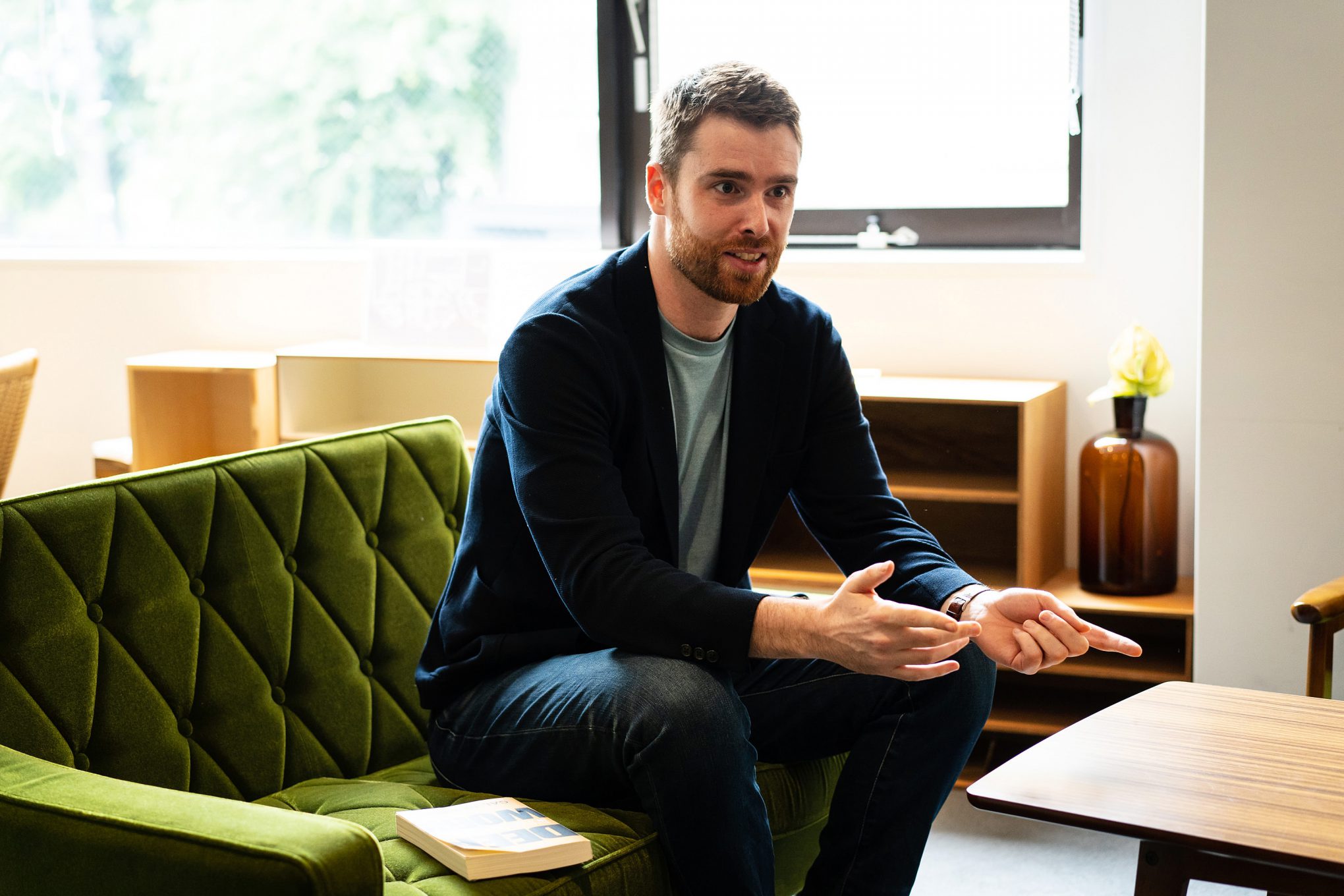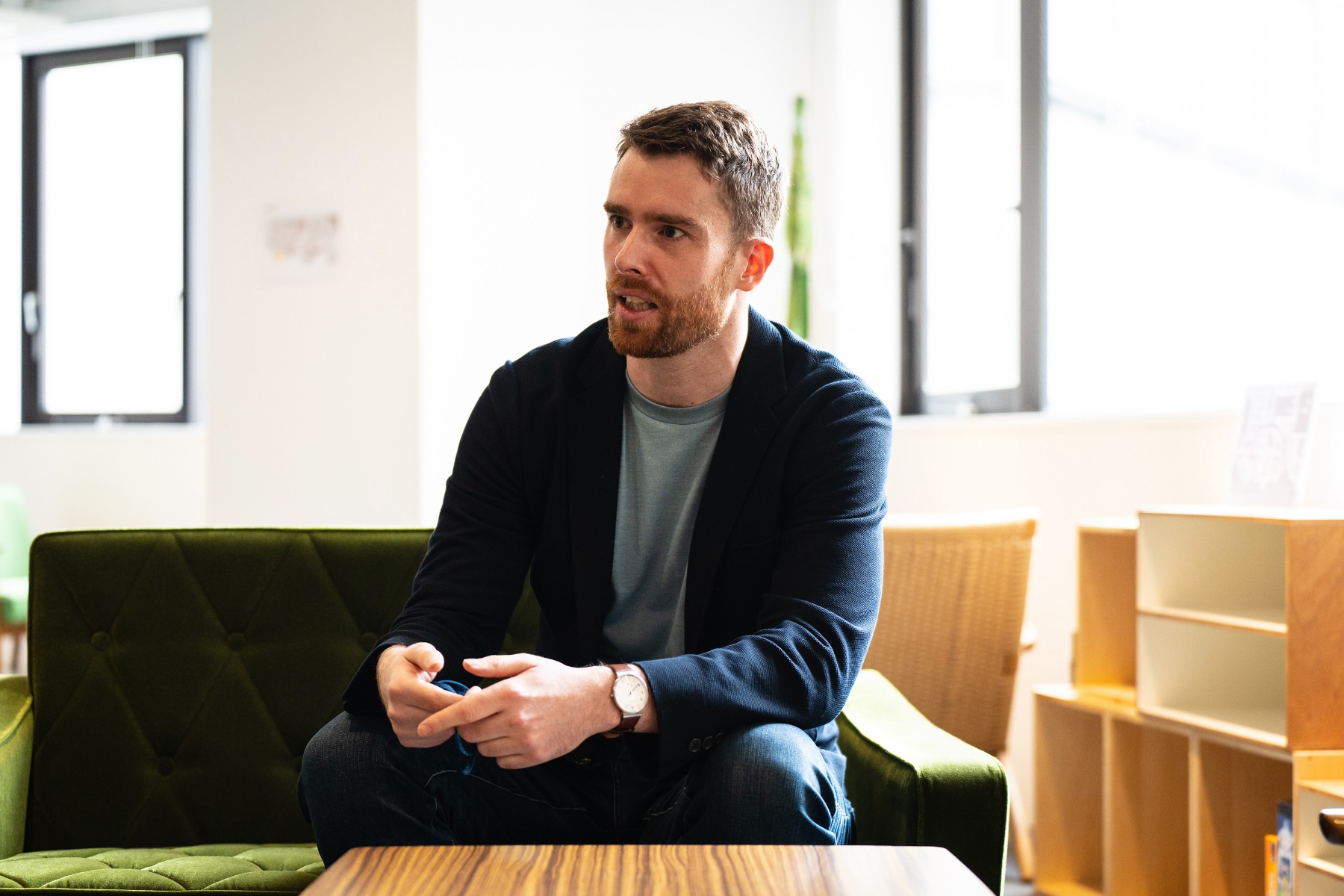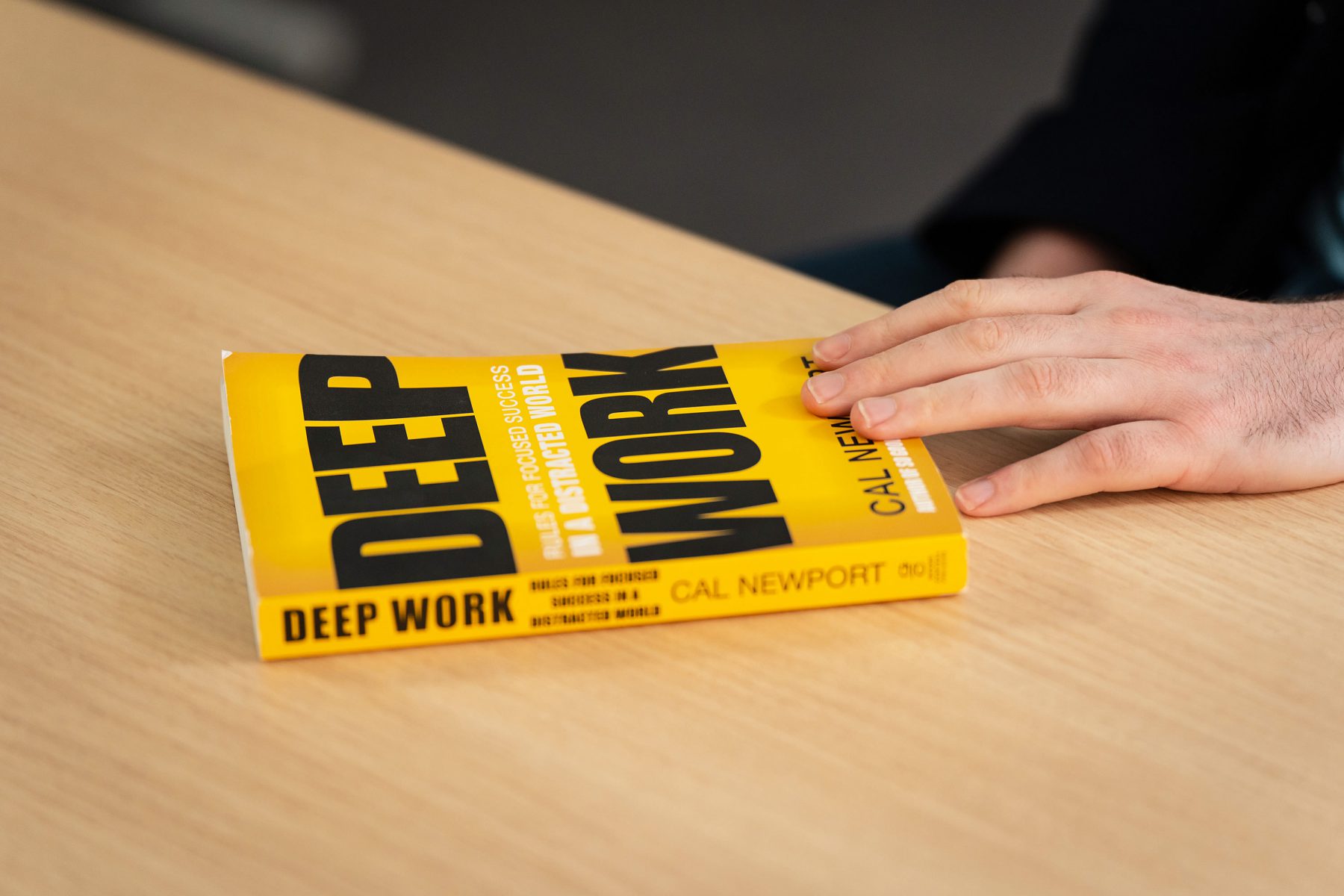
Data-driven decision making at the center of SmartNews
Tell us what you do at SmartNews.
I am starting up the business analytics team as part of the wider corporate planning group. Corporate Planning acts like a control center, aligning the great work that happens across the company into a unified strategy that drives forward our company mission: delivering the world’s quality information to the people who need it.
The objective of the business analytics team is to use data to optimize the strategies and targets of each team to make sure that all the divisions are working together towards a singual, cogent annual goal. This optimization is not limited to one regional office; we have to make sure that Japan and the US are in sync and that everything we’re doing is in support of the wider SmartNews mission. SmartNews places an incredibly high value on data. We created the business analytics team to bolster our capability to make data-driven decisions when it comes to strategy, which ultimately allows us to serve our users better.
What do you find to be the most rewarding part of your job?
SmartNews is on the precipice of scaling into a much bigger company. I think the next several years will be some of the most interesting as well as the most challenging. We need to retain all the culture that made the company great in the first place while also learning how to accommodate new ideas and new people. As someone who spent all their career in big companies, I’m really excited to see how we adapt during that time.
As SmartNews pushes to expand further globally, what value do you think the company provides to people around the world?
We live in a world where there’s so much information that it’s kind of inundating everyone. The role of SmartNews is to get “the world’s quality information to the people who need it.” There’s so much we can do to achieve this mission, and so much we still have left to do as we start to work with more information from other places in the world. I personally feel that providing information that is beneficial and not just entertaining is really important. We want to help people discover news that has an impact on the quality of their lives and the larger world, but that they might have missed otherwise.

Tell us about your early life.
I’m from Dublin, Ireland. I studied in Ireland, went to school in Ireland, did everything growing up in Ireland. I really had this strong desire to go and explore the world when I grew up, and so that kind of explains the career decisions later on in my life as I worked my way around different countries all over the world.
How did you get into tech?
I originally planned to go into finance. I studied Economics and Political Science in university and did internships at different banks during the summers. But while I was getting experience of what it was like to work in finance, I realized that I couldn’t really see the impact of my work; I was just following processes without really knowing what impact they were making on the real world. And then came 2008. The financial crash gave me the push to admit that, okay, maybe finance wasn’t the right place for me. So in 2008, I joined Ericsson, my first tech company.
One of the things I worked on while I was there was building 3G networks. It was the first time I could really see the output of my work. It gave me an appreciation for technology and what it could do for people. I was working with a lot of engineers, and that prompted me to actually go back and get my master’s in a more technical discipline. That’s why I learned programming and data analysis. It was a turning point in my career.
So you joined Google after getting your masters degree?
Yes, exactly. Basically as part of that program, we had to set up an eCommerce business. One of the mentors for students was a manager from Google’s office in Dublin. And so we were meeting with him every week. At some point, he said, “Actually, I’m setting up a team in Dublin to build out our strategy for Europe. Would you like to take a crack at it? I’ve enjoyed working with you.” So that was my entrance into Google and the start of my twelve-year career there.

Why did you choose to join a small startup like SmartNews after having worked for a tech giant?
For me, going to somewhere like SmartNews, a startup coming out of Japan, was a super exciting way to understand how a business can scale from a few hundred people and enter new markets. One of the things that’s so interesting to me about SmartNews is that the company exists in two very different stages of growth in two very different markets. In Japan, we’re an established brand with many users. People know who we are. In the US, we’re in the go-to-market phase. As part of the corporate planning division, I’m in the middle of both of these worlds. I use data to optimize Japan’s business strategy to grow revenue and increase our user base, and then I support the US with defining their core value proposition, all while making sure that we’re developing a cohesive strategy that comes together at the management level. This is a role where you can get quite deep exposure to both the key decision makers and the different businesses. It’s a really exciting time.
Was there anything during the interview process that helped you decide to join SmartNews?
Yeah, so I remember each interview being more of a discussion than an interview. Throughout the process, everyone involved was super interested in listening to you and sometimes even debating you. In particular, my final interview with our CEO Ken-san was spent largely discussing and debating the role of media news in Japan. He explained a lot about its history as well, and I remember finishing the interview and thinking, even if I don’t get this job, that was really interesting and I learned something. I got the sense that what I experienced during the interview process was probably a reflection of the culture at SmartNews. It was these kinds of things that pushed my decision to work here.
Working at SmartNews proved that what I thought during the interview process about the company culture was right. The people here are passionate about our mission. You can feel that by the conversations happening here everyday. Our mission is big, and we still have many things we need to do. I’m excited to see what lies ahead and what we will achieve together.
Books
Book Recommendation

The value of setting aside time for yourself for deep focus
The book I chose is Deep Work by Cal Newport. As my responsibilities increased over the course of my career at Google, so, too, did the number of meetings I was getting pulled into. As an analyst, what you’re supposed to be doing is thinking deeply about what the company should be doing next, about what our next moves or next markets should be, or the necessary next step in a project. This is nearly impossible when you’re stuck in meetings all day, every day.
It was around this time that Deep Work was recommended to me. This book talks about the value of setting aside some time in the day to focus deeply and work on an idea or a project in a very directed type of way. That means no Slack, no meetings. That’s why now I have a meeting-free day once a week. Because if you don’t set that time, you’re not proactively thinking about how to make things better or solve a problem, you’re just reacting to work that’s coming to you. So I try to minimize my meetings and maximize my time thinking and actually getting my projects done. This is easier said than done, but this book did help me to think about that.
Deep Work: Rules for Focused Success in a Distracted World
Cal Newport
Publisher: Grand Central Publishing
January 2016


